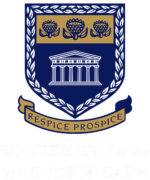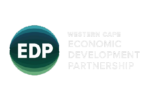About the Research Project
The South African National Research Foundation (NRF) together with the Dutch Research Council (NWO), under the Cooperation South Africa-Netherlands Programme , are funding research to support studies on solutions that balance trade-offs and amplify synergies between the water, energy, and food sectors while simultaneously preserving the environment.
Apart from academic research on the “Water-Energy-Food (WEF) Nexus”, the objective of this collaborative effort is to explore application-oriented solutions across the Water-Energy-Food (WEF) nexus, develop practical guidelines, and support decision and policymakers towards sustainable planning and practices, strategies and policies.
It is under this cooperation that an interdisciplinary team is carrying out a 4 – year study, from January 2020 until December 2024, on the WEF nexus approach in Cape Town. The study will propose a set of recommendations on a more nuanced view of the interconnected nature of water, energy and food sectors and a WEF nexus as an approach that can address interconnectedness and governance of water, energy, and food sectors with the aim to strengthen the resilience of Cape Town.
Cape Town faces a triple exposure to interrelated WEF crises which cannot be effectively addressed in a segmented way. Conventional Responses focus too much on individual domains. Better coordination and new approaches across multiple domains are needed to understand how vulnerabilities and solutions inherent to WEF crises materialize unevenly across the Cape Town metropolitan region. As such, (new) urban policies must address the complex geographies of water, energy and food supply and demand .
It is important to note that, not only is a better coordination across multiple WEF-related domains is needed, but also a better coordination across different levels, such as (household strategies, neighborhood-level responses, regional/metropolitan strategies and across legal or regulatory coordination at different policy levels.WEF crises are wicked problems that can only be better understood and addressed through inter- and trans-disciplinary collaboration.
Learn More about the WEF Nexus
Key Objectives of the Project
The project proposes to develop a water, energy, and food (WEF) nexus as an approach to increasing resilience capabilities in the Cape Town Metropolitan region. This will be done by achieving the following objectives:
- Identifying principles for approaching the WEF nexus for Cape Town
- Assessing the multi-dimensional interaction of water, energy, and food systems
- Exploring how water, energy, and food domains shape and are shaped six local sites
- Exploring the institutional and legal challenges shaping the governance of the WEF nexus
- Developing recommendations and policy briefs to inform nexus practices
Overall, a WEF nexus approach aims to improve integrated governance of water, energy, and food systems and therefore increasing the capacity of urban residents and public authorities to prepare for, cope with, and learn from, the resource crises affecting Cape Town.
Learn more about the Objectives and Impacts
Key Governance Questions for Cape Town
How do we ‘mobilise’ a nexus approach to inform contemporary resource challenges in Cape Town?
- What? What are the challenges facing Cape Town concerning Water, Energy, Food?
- Why? Why take an integrated-relational approach such as ‘the nexus’?
- Who?Who are the key actors and stakeholders to be engaged and how?
Emergent Findings
Cross-domain urban governance:
- High coordination and collaboration across sectors and with civil society actors at policy-making and strategic levels.
- Conflicts across resources for coordination: e.g. increased energy requirements for alternative water sourcing during ongoing energy crisis.
- Barriers to coordination and collaboration at operational levels: mandatism within departments caused by pressures on budgets, KPIs, lack of trust.
Place-based nexusing approaches:
- Small-scale urban food sector is highly vulnerable to water and energy crises.
- Small-scale food producers build resilience through changes in agricultural practices while larger food distributors use alternative technologies.
Importance of decision support systems:
- Decision Support Systems: e.g. GCX DASH- and its Material Flow Analysis
- Reveal the weaknesses of wider systems (City of Cape Town)
- Enabling informed decision making over resource flows and investments
- Barrier: disconnect between research and policy > need for co-production of actionable knowledge
To learn more about our findings and other interesting information , check out our publications and useful resources submitted by our partners.











